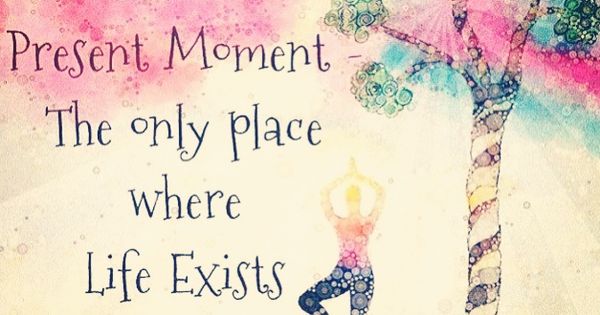 “Your worst enemy cannot harm you as much as your own unguarded thoughts.” ~Buddha
“Your worst enemy cannot harm you as much as your own unguarded thoughts.” ~Buddha
It’s doubtful anyone would question the desire to be less stressed in an age of distractions do to a hectic life of cell phones, text messages, computers, and social media. There is another cause to consider. The power of our rambling, busy, worried, caught-up, spaced-out mind!
Research has documented that 70,000 thoughts clutter our neural pathways every day. The Buddhists call this the “monkey mind,” a leap from thought to thought like monkeys swinging from tree to tree. Sadly, ninety percent are not new, creative, uplifting or inspiring. Engrossed in our story lines, our mind takes flight and we forget that reality unfolds only in the “here and now.”
We let the present slip away, allowing time to rush past unobserved, squandering precious seconds. We get so caught up in the content of our lives that blessings and joys escape us while we ruminate about what’s past and worry about the future. In the process, we lose touch with ourselves and it affects the way we live.
It’s hard to fathom the fact that ninety-five percent of our activity is controlled by the unconscious mind because we are so preoccupied with other thoughts.
- How many times have you read something, didn’t absorb the words because your thoughts were somewhere else?
- How many times have you been part of a conversation, discovered you weren’t listening because your mind was elsewhere?
The good news, there’s a way to feel more in control of our minds and our lives, and to find the sense of balance that eludes us. It’s called Mindfulness—living in the moment—“a state of active, open, intentional attention on the present.” We need to “rest in stillness”, become aware of where we are, what we are doing, thinking and feeling. We need to notice—really notice—the sights, sounds, and smells that ordinarily slip by without reaching our conscious awareness.
Evidence-based, the effects of Mindfulness have long been recognized. It reduces stress, boosts the immune system, returns the nervous system to a more relaxed state, lowers blood pressure, decreases anxiety, improves focus and memory. It also impacts our happiness, work, and relationships.
Mindful magazine says, “It isn’t about fixing you, stopping your thoughts, escaping from reality or a panacea.” Being in the “now”, where life happens when our awareness is not obscured in the details, we can tap into our inner wisdom, and redirect the rat race of the mind.
Pema Chödrön, the renowned Buddhist nun and best-selling author, writes of a technique that allows us to be aware of the present moment. It’s called the pause practice. Take three conscious breaths while you concentrate on the inhale and exhale. It’s a powerful practice that can be done at any given moment—at home, work, waiting in the grocery store, the bank, the car, brushing your teeth, making coffee. The opportunities are endless.
My experience, as a long time practitioner of mindfulness and meditation, has shown me when you practice surrendering to the present moment, your mind will have the opportunity to become more open, balanced, and calmer. Over time, as you weaken negative thought patterns, you will find it easier to refrain from being reactionary, saying or doing something regrettable.
It’s important to understand that you are never going to stop your mind from wandering, it’s the way the brain is hardwired. Don’t set yourself up for an expectation that will not come to fruition. It takes time and practice, but once you are aware of your internal dialog and recognize how fleeting your thoughts are, you can train yourself to bring them back to the present moment. Keep it simple at first. Scan your thinking patterns. You will begin to see the truth in what the Buddhists call “monkey mind.” There is only one time and place where you can be, only one place you have any control—the present moment!
Because we are easily distracted, reminders to pause can be helpful. Below are two links to support your efforts. I have also included a link on Mindfulness Meditation, and a link on how the stress hormone cortisol affects our physical and emotional body.
http://www.huffingtonpost.com/2013/12/12/the-10-best-apps-for-a-ca_n_4426410.html The 8 Best Apps for A Calm, Focused Mind.
http://www.meaningtopause.com/ “A meaning to pause bracelet provides a gentle private vibration to remind you to redirect your thoughts.” I have bought several as gifts to friends. One individual told me it was a tremendous help as she navigated through the uncharted territory of breast cancer.
https://www.psychologytoday.com/blog/the-courage-be-present/201001/how-practice-mindfulness-meditation How to Practice Mindfulness
https://helpguide.org/articles/stress/stress-symptoms-causes-and-effects.htm Harmful effects of chronic stress.